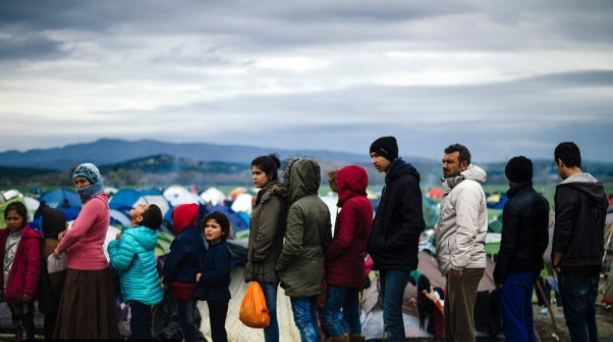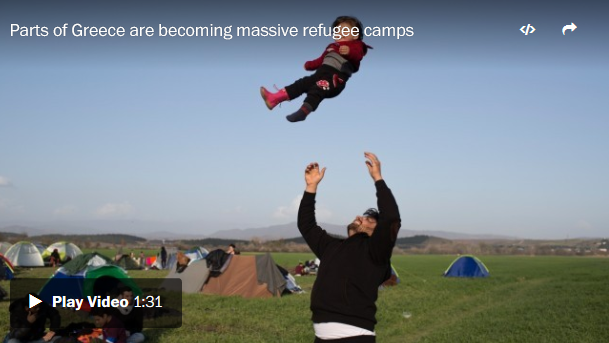At least three nations along the once-busy migrant routes — Serbia, Slovenia and Croatia — barred the passage of all migrants without European visas, effectively blocking many of the refugees, asylum seekers and others from war zones such as Syria and Iraq.
Aid groups said some migrants stranded at border posts in the Balkans began to drift away as many lost hope of crossing en route to such nations Germany and Sweden. At the same time, however, a bottleneck of the desperate was growing at the European entry point in Greece.
Roughly 30,000 migrants were stranded there, including 13,000 at the northern border with Macedonia, which refused to allow any new migrants to cross for a third day running. Heavy rain added to the misery as families tried to huddle under tents or makeshift shelters.
The accord also seeks to deal a crippling blow to smuggling networks that have funneled more than 1 million people into Greece over the past year.
At Lesbos’s main port, Mytilene, about 4,200 migrants waited in camps for a possible onward trip to the Greek mainland.
“These people are desperate and more and more anxious now,” Babar Baloch, a spokesman for the U.N. refugee agency at the Greek-Macedonian border, said in a phone interview.
“The conditions are bad,” he said. “They are not livable, not human. This is going to bring more chaos, more misery.”
Asked about the new preliminary deal to return to Turkey all migrants crossing the Aegean Sea, Baloch said: “Europe can not outsource responsibly to a third-country. Europe has to take responsibility.”
Under the deal, all new migrants — including Syrians and Iraqis — found at sea or who reach Greece by boat would be sent back to Turkey. But for each Syrian among those returned, the European Union would be required to accept another Syrian directly from Turkish refugee camps in a “one-for-one” exchange.
Only Syrians, and not even Iraqis fleeing the Islamic State, appear to qualify for that direct relocation program. Even Syrians who risk the sea and are turned back could be blacklisted from legal resettlement in Europe, providing an extra incentive for migrants to avoid even trying to cross the Aegean.
In exchange for taking back migrants, Turkey — already hosting about 2.7 million Syrian refugees on its soil — is driving a hard bargain, and it surprised its European counterparts at the start of the talks on Monday with further demands. In addition to new aid, Ankara also wants accelerated talks on joining the European Union — a bid opposed by many current members — as well as visa-free travel within the E.U. for Turkish citizens. European nations, facing a strong domestic backlash against migrants, may have little choice but to agree.
The deal is a “breakthrough, if it is realized, if it is implemented,” said German Chancellor Angela Merkel.
Critics immediately accused the Europeans of political expediency by agreeing to a deal that could only strengthen the authoritarian rule of Turkish President Recep Tayyip Erdogan. His government recently seized control of the country’s largest newspaper, and its crackdown on dissent in Kurdish pockets of the country has raised alarm over fast-deteriorating human rights.
Source https://www.washingtonpost.com/world/migrants-seek-landfall-in-europe-even-as-deal-takes-shape-to-send-them-back/2016/03/09/5d523000-e5e4-11e5-a6f3-21ccdbc5f74e_story.html



 RSS Feed
RSS Feed